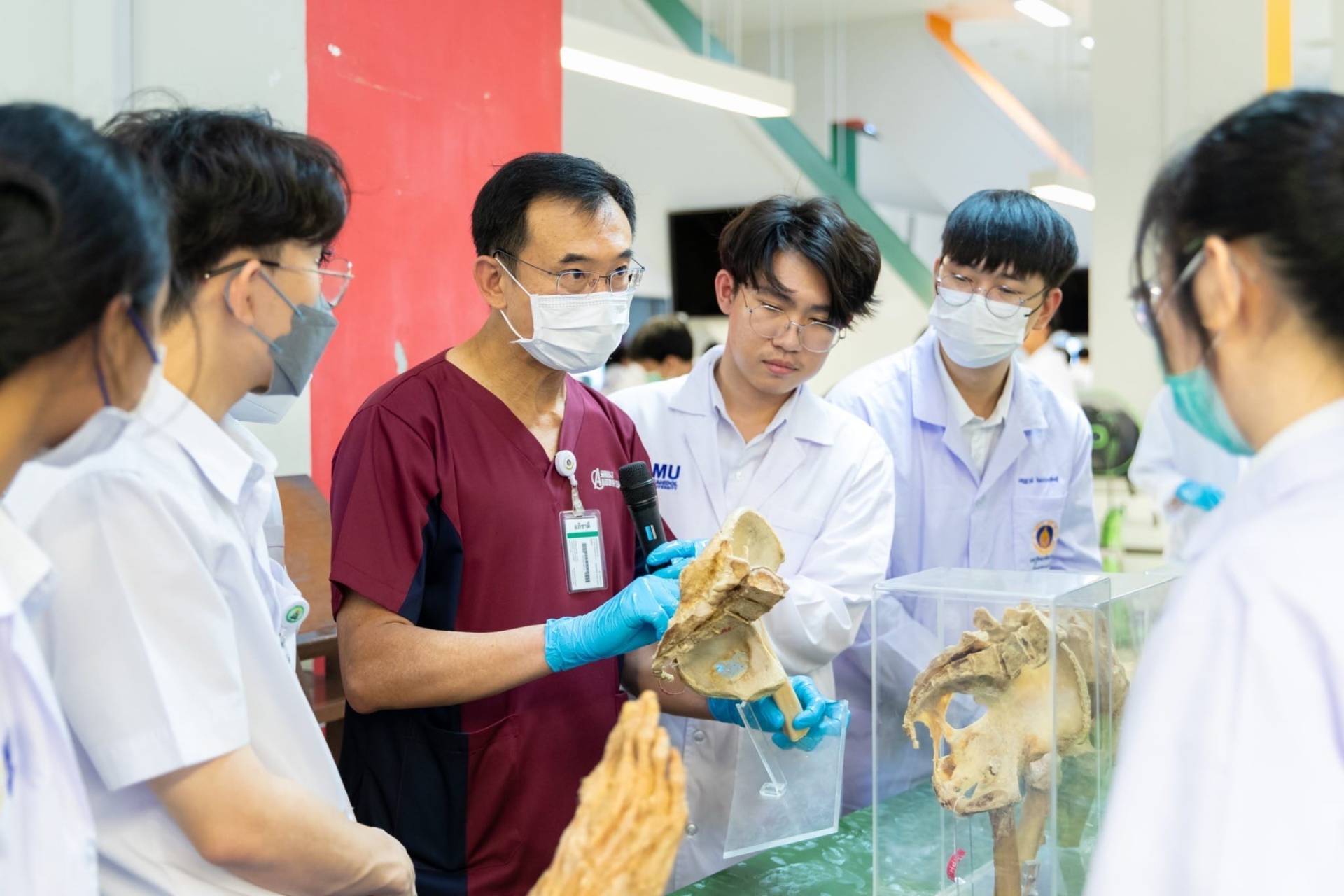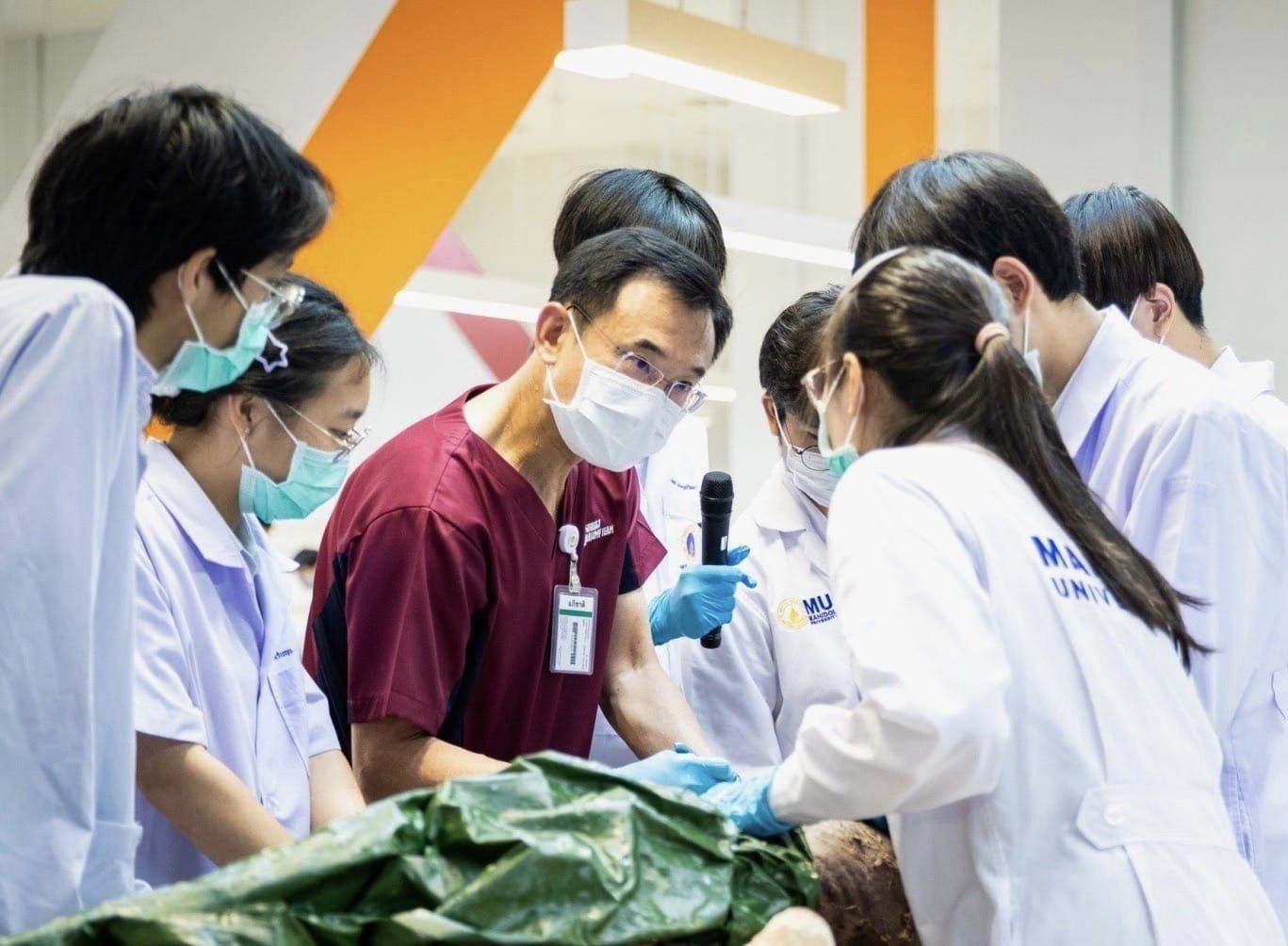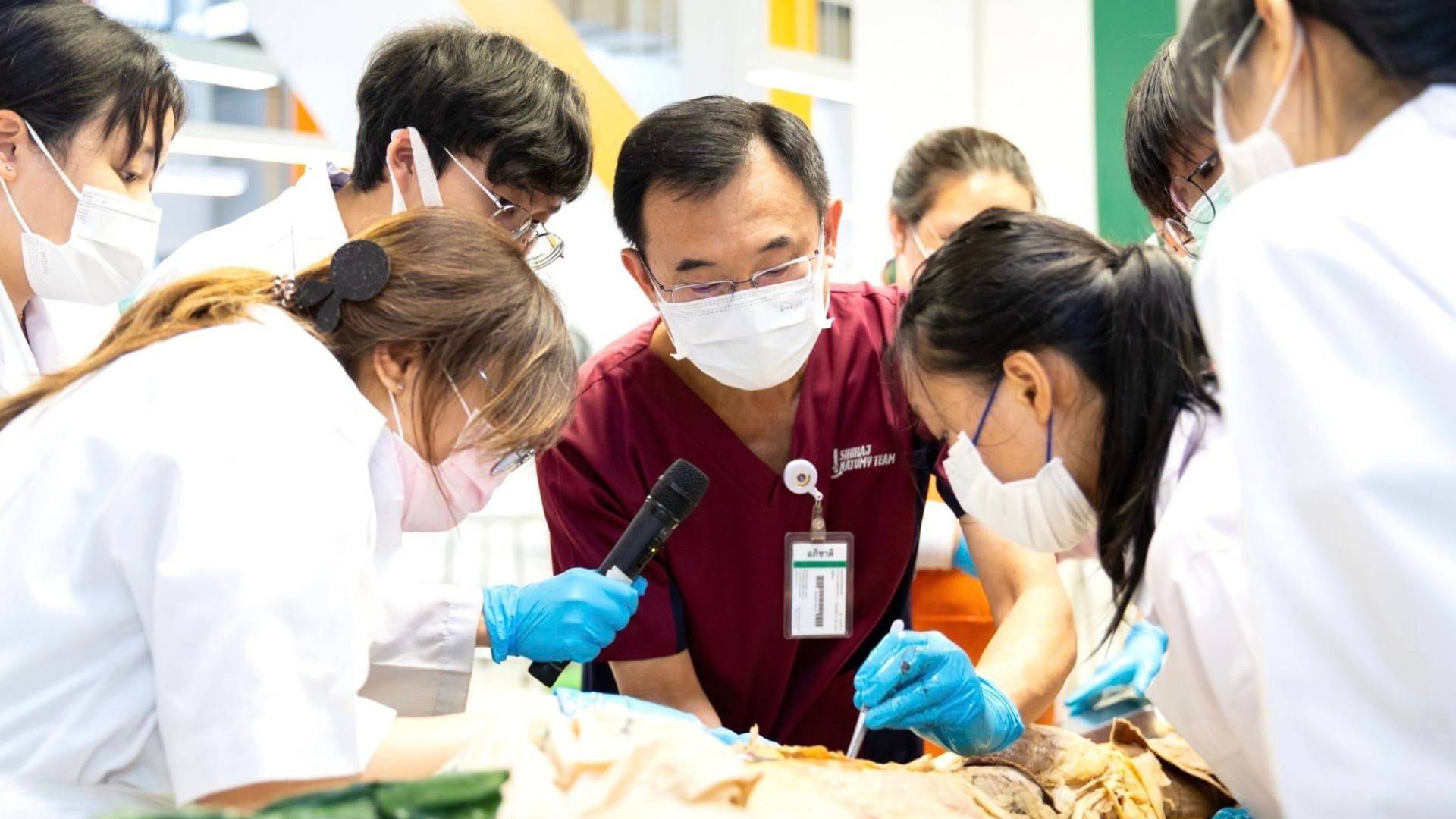Prof. Apichat Asavamongkolkul, Dean of the Faculty of Medicine at Siriraj Hospital, Mahidol University, actively engaged in the instruction of gross anatomy as part of the Early Clinical Exposure (ECE) Activities tailored for preclinical medical students alongside instructors from the Department of Anatomy.
Early Clinical Exposure (ECE) represents an innovative and progressive teaching-learning approach purposefully designed to foster early patient interaction for medical students, commencing as early as their inaugural year in medical school. This initiative aims to imbue future healthcare practitioners with invaluable experiences, nurturing their empathetic and clinical skills right from the onset of their medical education.


































